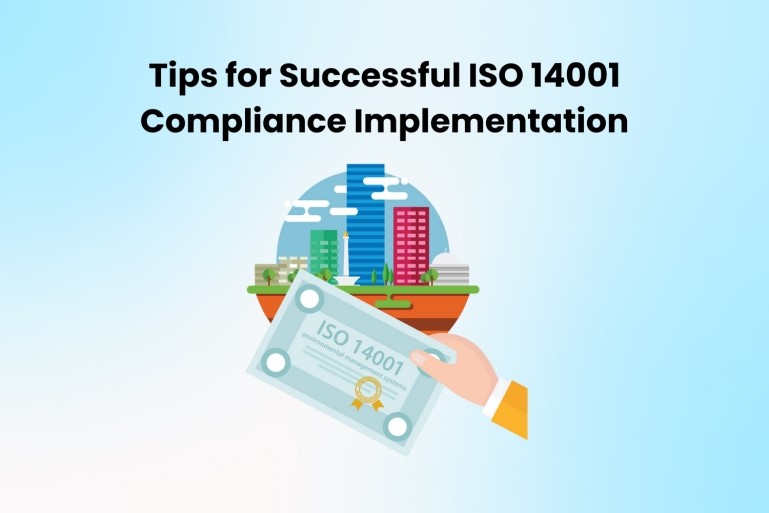Key Takeaways:
- An Employer of Record (EOR) helps businesses navigate international employment laws and manage global workforce compliance.
- EORs mitigate employment-related risks, streamline payroll and benefits, and support strategic global talent acquisition.
- Technological tools enhance the efficiency of EOR services and enable better integration with company systems.
- Government regulations and policy changes can significantly influence the effectiveness and operations of EORs.
Table of Contents:
- The Role of an Employer of Record in Expanding Business Horizons
- Employment Compliance and Risk Management in Different Jurisdictions
- Streamlining International Payroll and Benefits Administration
- Strategies for Effective Global Talent Acquisition and Management
- The Technological Edge: Using Software to Enhance EOR Services
- Impact on Small to Medium-Sized Enterprises (SMEs)
- Key Considerations When Selecting an Employer of Record
- Case Studies: Success and Setbacks in Utilizing EOR Services
- The Role of Government Regulations and Policies on EORs
The Role of an Employer of Record in Expanding Business Horizons
Extending a business into the international market can be as exciting as challenging, with complexities such as managing diverse employment laws and HR functions. Herein lies the strategic value of an employer of record. This essential partner seamlessly employs staff on behalf of a company across borders while managing all compliance with local labor laws. This solution allows businesses to delegate administrative responsibilities and focus on growth and operational strategy in the global marketplace.
By leveraging employers of record services, companies gain the advantage of quickly entering new markets without establishing a legal entity, thus reducing time to market. An EOR becomes the face of the employer for lawful purposes, enabling the client company to manage its team without being bogged down by the nuances of local legal requirements. This partnership can prove favorable regarding cost and agility and allow companies to tap into regional talent pools unhindered by administrative barriers.
Employment Compliance and Risk Management in Different Jurisdictions
Global compliance is a monumental task involving adhering to many labor regulations, tax laws, and employment rights that differ from country to country. Businesses can find themselves at risk of penalties for non-compliance if they navigate these laws appropriately. However, EOR services provide a safeguard, expertly managing risk by keeping abreast of changes in legislation and acting as a buffer between the complexities of compliance and the client’s operational needs. The specialized knowledge possessed by EORs is indispensable for businesses that want to ensure lawful employment practices across diverse geographical landscapes.
The reliability of an EOR lies in its ability to shoulder the burden of contractual intricacies, often involving the preparation and provision of statutory employee benefits, adherence to minimum wage requirements, and timely tax submissions. This comprehensive management of legal obligations liberates companies from potential litigation or financial setbacks due to inadvertent regulatory oversights.
Streamlining International Payroll and Benefits Administration
Centralizing payroll and managing a global roster of employees with varying tax implications and benefits entitlements can quickly escalate in complexity. Here, the proficiency of an EOR is evident, as they deliver hassle-free solutions for payroll processing, including accurate computation, tax deductions, and ensuring timely disbursement that complies with local standards. Moreover, an employer of record often administers employee benefits, including health insurance, retirement plans, and other incentives adapted to fit the regional norms and attract top talent.
Critical to its role, an EOR ensures that these benefits are competitive, culturally acceptable, and legally compliant. The goal is to create a seamless experience for the employee, regardless of location, to feel equally valued and supported as part of the global team.
Strategies for Effective Global Talent Acquisition and Management
Global expansion is linked to a company’s ability to acquire and retain talent in new markets. The role of an EOR transcends the administrative, venturing into strategic talent management. With local insights and global perspectives, EORs can streamline the hiring processes, facilitate diverse candidate outreach, and implement practices that align with a company’s global HR strategy while adhering to the area’s cultural and legal nuances.
Investing in the right talent acquisition strategies and fostering an inclusive work environment leads to higher retention rates and bolsters a company’s reputation as a global employer. An EOR can deliver this through enriched regional hiring exercises supported by robust knowledge of labor markets, candidate expectations, and competitive compensation packages.
The Technological Edge: Using Software to Enhance EOR Services
With the digital transformation rapidly shaping various industries, employers of record services are still catching up. Innovative platforms and software have emerged as significant allies to EOR businesses, driving efficiency and offering insights into workforce analytics. These tools enable streamlined workflow management, easy collaboration, and improved client decision-making through centralized and accessible digital frameworks.
Integrating sophisticated software into the EOR model allows for more transparent communication and reporting between the client and the service provider. By utilizing these platforms, companies can gain real-time insights into employee data, manage international teams more effectively, and swiftly adapt to changes within their workforce.
Impact on Small to Medium-Sized Enterprises (SMEs)
Employers of record services are not solely the arena of large multinationals. SMEs can also capitalize on the benefits, often leveraging EOR services to fast-track international exposure and drive competitive advantage in global markets. Using EORs can enable SMEs to sidestep the significant infrastructural investments needed for overseas expansion. By minimizing the barriers to entry, SMEs can quickly establish a presence and generate new revenue streams in foreign markets without the overhead of setting up local entities or subsidiaries.
Key Considerations When Selecting an Employer of Record
The discerning process of selecting an employer of record is foundational to a thriving global venture. Considering the diversity of EORs available, evaluating their scope of services, geographical coverage, track record, and the responsiveness of their client support becomes imperative. A thorough vetting process that addresses all these aspects helps ensure a business partnership is well-aligned with your company’s vision and objectives.
Your due diligence should probe into the EOR’s history of managing complex international employment arrangements and its aptitude for customization to fit your unique business needs. The goal is to select an EOR that surpasses being a mere intermediary but becomes an efficient extension of your HR arm.
Case Studies: Success and Setbacks in Utilizing EOR Services
In exploring EOR services through case studies, one uncovers practical insights into their real-world applications. Success tales serve as testaments to the strategic value EORs add, while setbacks provide cautionary tales that underscore the importance of clear communication and aligned expectations. Examining various use cases and experiences allows companies to make informed choices and leverage EOR partnerships to their fullest potential.
The Role of Government Regulations and Policies on EORs
Governmental bodies across the globe are increasingly interested in the operations of EORs, given their integral role in global employment and economic activity. Regulatory frameworks are evolving to address the complexities of international jobs, and EORs must navigate these changes adeptly. It becomes crucial for EORs to stay informed and responsive to policy shifts that could impact their service provisions.
Monitoring changes in trade agreements, labor laws, and tax treaties is a continuous requirement. Businesses considering employer-of-record services must consider how these external factors might influence their operations.











